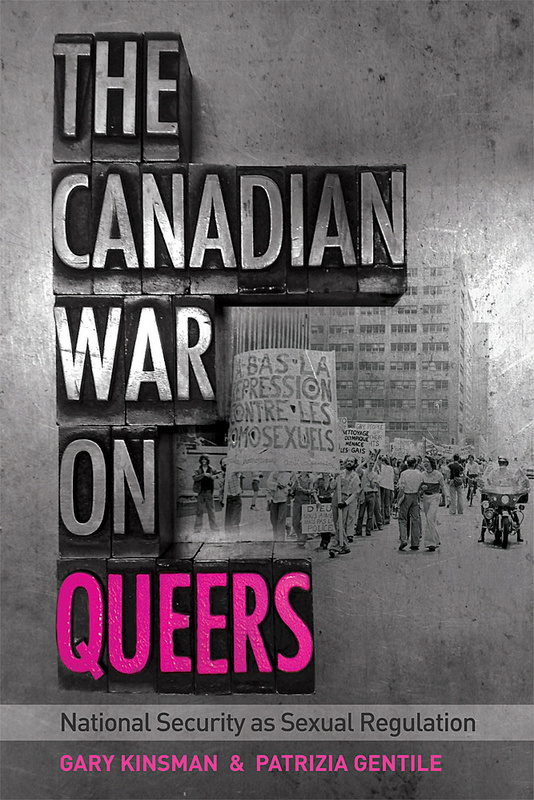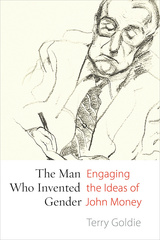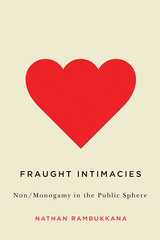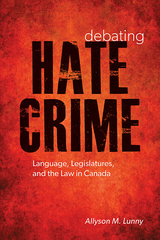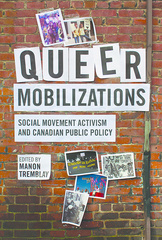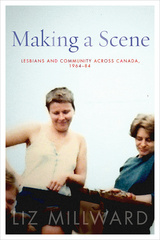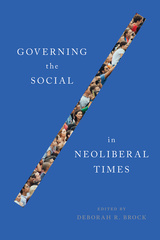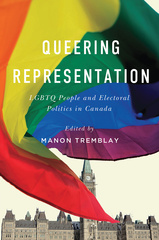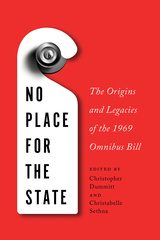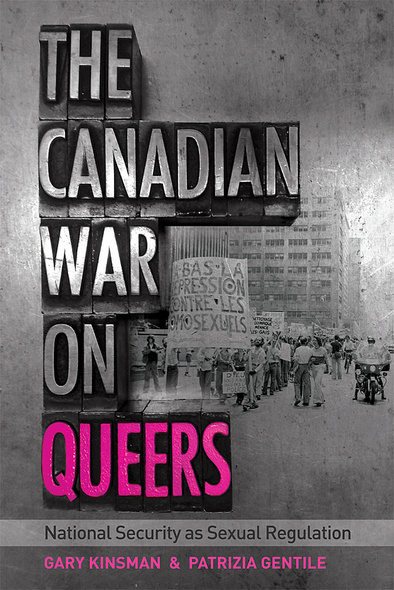
The Canadian War on Queers
National Security as Sexual Regulation
From the 1950s to the late 1990s, agents of the state spied on, interrogated, and harassed gays and lesbians in Canada, employing social ideologies and other practices to construct their target – people who deviated from the so-called norm – as threats to society and enemies of the state.
Reconstructed from official security regime documents released through the Access to Information Act and interviews with gays, lesbians, civil servants, and high-ranking officials, The Canadian War on Queers offers a passionate, personalized account of a national security campaign that violated people’s civil rights and freedoms in an attempt to regulate their sexual practices. Gary Kinsman and Patrizia Gentile disclose not only the acts of state repression that accompanied the Canadian war on queers but also forms of resistance that raise questions about just whose national security was being protected and about national security as an ideological practice.
This path-breaking account of how the state used national security to wage war on its own people offers ways of understanding, and resisting, contemporary ideological conflicts such as the “war on terror.” It should be required reading for students, scholars, and social activists in lesbian, gay, and queer studies or anyone interested in the issues of national security, state repression, and human rights.
This book will be required reading for students, scholars, and social activists in lesbian, gay, and queer studies or anyone interested in the issues of state repression and human rights.
Kinsman and Gentile have taken on an ambitious project both with respect to their topic as well as the scope of more than four decades worth of material. This is an incredibly important piece of work and will be appreciated by those who have a historical interest in national security campaigns and queer history, as well as those who want a history on which to base contemporary resistance to the security campaigns that are still being mounted against many marginalized people today.
This account of the surveillance of Canadian lesbians and gays in the name of national security is impressive, at once bone-chilling and inspiring.
An important intervention into mainstream studies of Canadian historiography.
A landmark book in the study of Canadian state security apparatuses and an important contribution to Canadian history and LGBT studies.
The Canadian War on Queers is a groundbreaking account of campaigns by the Canadian state against its own people. Passionately written and thoroughly researched, the book performs a public service by revealing how prejudice can destroy lives but, as importantly, how bigotry can be resisted. This book not only deserves to be read, it needs to be read.
Reading this meticulously researched and well-written book is like lifting up a big rock on a beach and staring with awe and astonishment at the creatures that slither for new cover … A powerful chronicle of the appalling campaigns of fear and lies that shattered and destroyed the lives of countless gay and lesbian Canadians in the name of national security. It names both the villains and the heroes, and is history all Canadians should be aware of.
Compelling personal stories illuminate this impeccably researched analysis of the use of national security legislation to wage a war against lesbian and gay Canadians during the Cold War years. As if that wasn’t enough to accomplish in a single book, the authors employ this history to lay bare the current government’s use of national security legislation to silence critics of corporate power and justify a litany of human rights abuses in today’s ‘war on terror.’ A profound and extremely readable contribution to both queer history and the politics of fear that masquerade as straightforward policy concerns.
The Canadian War on Queers is a major work on the history of the Canadian state security practices and an astonishing piece of queer social history. Kinsman and Gentile present an account of a national security regime built on persecutory practices that are mind-boggling in their scale and longevity. At the heart of this book is a collection of oral histories that are smart, heart-breaking, and funny. While it might sound trite, they have a lot to tell us about the importance of community and the possibility of resistance. The analysis offered by Kinsman and Gentile and the extensive archive constituted through their work is going to make an invigorating contribution to the history of sexuality in Canada.
National security, state repression, and human rights: Who wouldn’t love a book with this much intrigue! Beautifully realized, this is an unbelievable fifty-year journey documenting a critical part of queer Canadian history. Not only is it impeccably researched but it’s told through the voices of our community.
Preface: National Security Wars Then and Now
1 Queering National Security, the Cold War, and Canadian History
2 Queer History and Sociology from Below: Resisting National Security as an Ideological Practice
3 The Cold War against Queers: Social and Historical Contexts
4 The Social Relations of National Security: Spying and Interrogation
5 The “Fruit Machine”: Attempting to Detect Queers
6 Queer Resistance and the Security Response
7 The Campaign Continues in the 1970s: Security Risks and Lesbian Purges in the Military
8 “Gay Political Activists” and “Radical Lesbians”: Organizing against the National Security State
9 From Exclusion to Assimilation
10 Resisting the Expanding National Security State: From the Canadian War on Queers to the War on “Terror”
Appendix
Notes
Bibliography
Index

